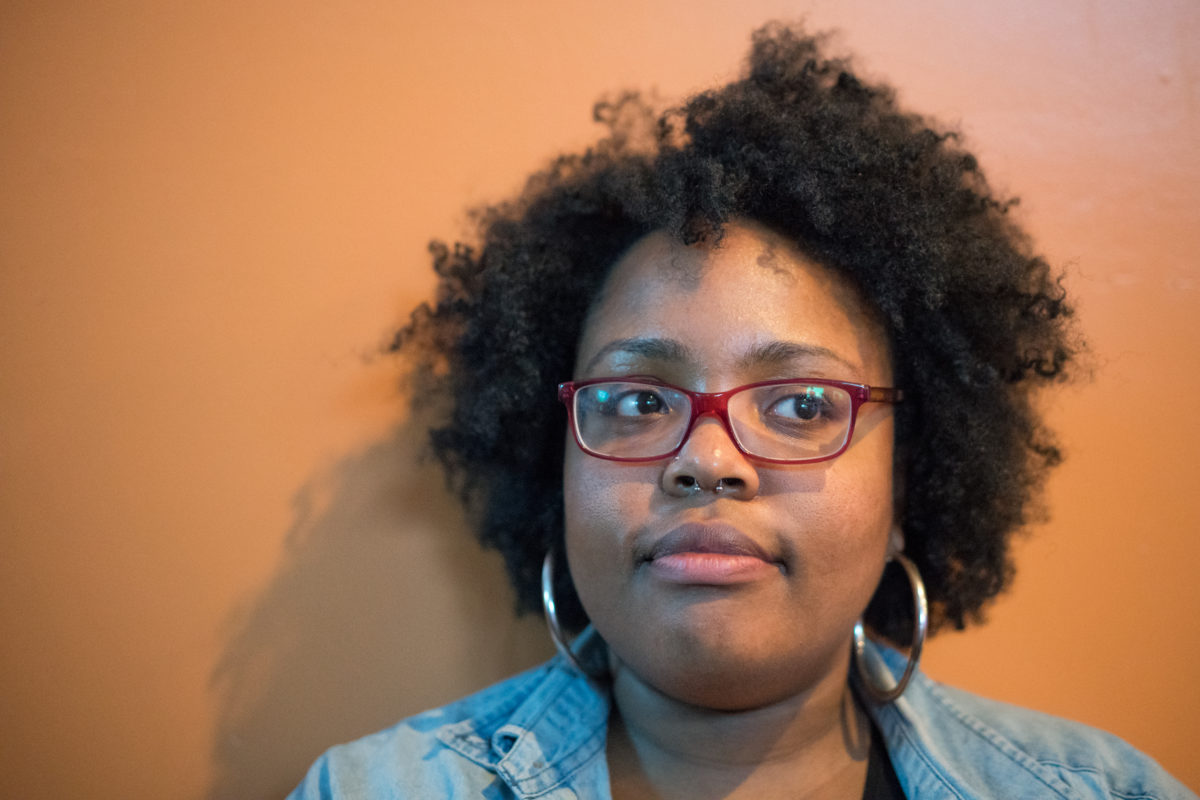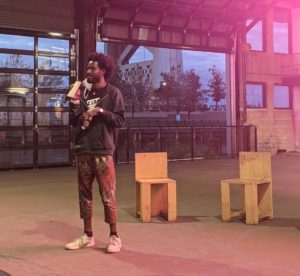cinéSPEAK and the future of cinema in West Philly
 October 25, 2021
Category: Featured, Long, Purpose
October 25, 2021
Category: Featured, Long, Purpose
Philadelphia is a city with a rich history of, and connection to, independent media and cinema including — world-class film festivals like BlackStar, legacy institutions like Scribe, and a bevy of local filmmakers and talent.
Among that list, cinéSPEAK is making a name for itself through adaptive programming, an online journal, and the development of a microcinema in West Philly.
“I never intended to start an organization. That’s what I always say — it just sort of happened,” said Sarah Mueller, founder and director. In 2013, Mueller launched cinéSPEAK with an inaugural screening as a way to introduce independent projects that would not traditionally have an audience or home in the city.
“There was this [programming] gap that I was seeing. There’d be all these independent films that would slip through the cracks and would never actually play Philly, so I was wondering what happens to those films? How do Philadelphians get access to those stories?”
A graduate of University of the Arts’ film program and formerly associated with the International House as well as various local film festivals, Mueller has spearheaded the expansion of cinéSPEAK and its social justice centered mission of connecting diverse audiences to each other, unique voices and representations in media, and to activism and advocacy.
“The idea was to bring more contemporary independent cinema to the city; create experiences around independent film, both contemporary and repertory or like classic films; and then also use them as a tool to connect people to movement building, of which Philly has a legacy of being a city that often uses the arts to connect people to grassroots organizing,” Mueller said.
Since the onset of the COVID-19 pandemic, cinéSPEAK has had to make some shifts including adapting to online screenings and hiring new staff. Vernon Jordan III started in April 2021 as the assistant director of programming and has been responsible for maintaining the calendar of online and in-person events, including two recent short film screenings about love and joy at Cherry Street Pier.
“I remember being on the bus, and I think it might have been after the first time that Sarah and I had talked [about the programming position], and just daydreaming about all the possibilities of screening films and bridging the gap between audiences and other filmmakers, who are also in Philly. And I just got really excited about that possibility, which is now that very real reality with some of the programming stuff that we’ve been doing,” Jordan said.
Mueller met Jordan when she was a teaching artist for a program they attended as a teen. Their long-term acquaintanceship blossomed into this current creative collaboration as cinéSPEAK’s programming team with a cohesive vision to affect change in community.
“I just so believe that when we have a robust centering of the arts, so much in our community changes. It gives folks a place to express and release and speak truth without a hierarchy or without the kind of very rigid structures that are imposed on people when they’re in a system,” Jordan said.
Similarly, Mueller met Robert Cargni, project manager for cinéSPEAK’s West Philly cinema development, years ago when they worked together at International House.
A film veteran with over three decades of programming, projection, and venue management experience and expertise, Cargni is ready to lead the charge of filling the gap left by I-House’s departure from West Philly.
“Where are those other spaces where you can go and see something in a community that holds the same value, whether it’s the same value because you live in the same community or that the type of product that is being shown engages you as a community? Where are those spaces?” Cargni asked. “You tell me. I think there’s a void.”
Located at the corner of 48th St. and Baltimore Avenue, the Calvary United Methodist Church, in addition to being an active congregation, has served as a community and cultural organizing hub for decades. As the future site of the cinéSPEAK theater, the spiritual nature of cinema will be further emphasized.
“I love that we can create this space, where there is the sacred and secular happening, knowing that art making and experiencing is a deeply spiritual thing,” Mueller said. “And we hope people feel really full and moved, whether it is by a rattling of their consciousness to care about something or to have a new way to interact with it or address it, or just be filled up by watching something that really affirms their lived experience.”
A fundraising goal has been set for $50,000 by the end of the year, and programming at Calvary could start as early as March.
When asked about the desired impact of the completion of such a project, Cargni said, “I think that there’s an untapped audience there. Some people go to the movies to be entertained. Some people go to be edified. Some people go to be part of community.”
Some people go because they see that what they’re about, what they’re thinking about, what their concerns are, what their dreams and aspirations are, are being addressed. By a venue,” he added. “It makes everybody feel like they’re being spoken to, not being spoken at.”
Trending News












